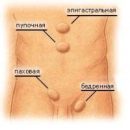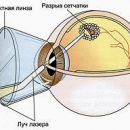Spring - time, joyful not for everyone. Together with the blooming gardens and aromas, the horses come to many, nasal congestion, itching and other unpleasant symptoms. «Allergy!» - We say in such a situation. So what kind of disease is an allergic runny nose?
Forms of allergies
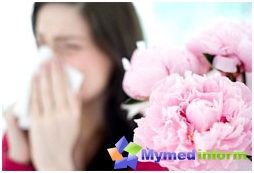
Allergic diseases - Beach of our time, and the runny nose of allergic nature is one of the most common pathologies on Earth: they suffer from 10 to 25% of the population of different countries of the world.
Previously, doctors divided an allergic runny nose into two forms: seasonal (the so-called spring polynosis - it was about him and was discussed at the beginning of the article) and permanent (or year-round). Now there is a slightly different classification, which distinguishes:
- Intermittent - Periodic - the form of the disease (symptoms are observed no more than 4 days a week or no longer than 4 weeks per year). It corresponds to a seasonal cold for an old classification.
- Persist - constant - the form in which, accordingly, the patient suffers from a cold for more than 4 days a week or more than 4 weeks a year - analogue of the year-round allergic form.
And depending on the severity of symptoms and, most importantly, from inconveniences delivered to «owner», Allergic rhinitis is divided into three severity:
- Little - at which the patient's sleep is not disturbed, and, in general, the runny nose affects its usual and professional activities;
- medium-free - when sleep disorders appear, reducing everyday activity, problems with work or with sports training;
- heavy - at which existing disorders already exempt and the disease delivers strong torments to the patient.
Where it comes from: causes of the disease
The cause of an allergic runny nose can be designated in one word: Allergen. What it is, known to everyone - a certain substance that is perceived by the human body as a foreign, dangerous agent, finding which, the body begins to fight.
At Seasonal form of allergies provocateurs of the disease most often are pollen of flowering plants (birch, walnut, cereals, poplar fluff, ambrosia and t. D.).
Chief Allergen Ply constant form of the disease - home dust (exactly contained in it microscopic pings genus DERMATOPHAGOIDEUS). In second place to significantly - animal wool. Also often provoking factors are paper dust, food for aquarium fish, mold fungi, certain products, medicines and much more.
Symptoms
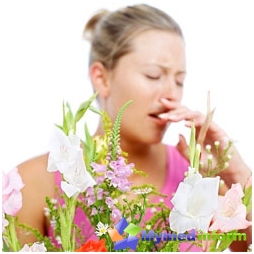
The most important thing is to make a diagnosis correctly, and for this you need to know the symptoms of the disease.
For a runny nose of allergic nature characteristic:
- Abundant watery discharge from the nose. They often do not even look like snot, and more resemble ordinary water;
- Breathing through the nose. This is caused by the swelling of the nasal mucous membrane;
- Itching, tickling in the nose, sudden sneezing attacks.
In addition to these three «Classic» Symptoms may be observed: tearing, itching and redness of the eyes, skin itching, reducing the perception of smells, headaches and fatigue. Full «set» Symptoms are more often characteristic for the seasonal version of an allergic runny nose, and its constant form can flow sluggish, without itching, sneezing and manifest itself only to moderate discharge from the nose and the difficulty of nasal breathing.
How to diagnose?
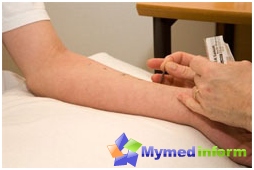
For accurate diagnosis, it is not enough to find the above described symptoms. They will help to suspect the allergic nature of a runny nose, but you can confirm suspicions only by examining. So what needs to be done?
Turn to the ENT doctor. With the help of a special nose mirror, the otorhinolaryngologist will examine the nasal cavity, the color, the degree of swelling, the overall condition of the mucous membrane, the nature of the nasal selection and compare it with the picture typical of allergic.
Then need Rent analyzes:
- general blood analysis. In allergic reactions in blood analysis, the level of eosinophils increases (in the normal indicator, this indicator does not exceed 5). With a cold, for example, bacterial nature, the increase in leukocytes is found in the blood. However, an increase in the number of eosinophils in the general blood test - a sign is not mandatory and detected only in 30% of patients with allergic rhinitis.
- Mail from the nasal cavity on all the same eosinophils (this study is much more informative). Normally, in the discharge from the nose of these blood cells, it is not found, but during an allergic cold, they are found more than 70% of patients. In addition, this analysis is done extremely simple, it can be (and necessary) to repeat several times, which significantly increases the likelihood of the correct diagnosis.
After the allergic nature is rudely installed and does not cause doubts, you need to try to find out what substance causes such a reaction. To do this, you need to consult an allergist.
so, Allergologist consultation and, according to the testimony, conducting skin samples. To do this, a set of different allergens is applied to the patient's forearm skin, then small punctures make and after a certain time measured the dimensions of the blisters formed.
But, unfortunately, to identify «Harmful» The substance can not always. First, samples are made only on the most common allergens (and this is a maximum of several hundred agents), the number of potential provocateurs is calculated tens of thousands. Secondly, the definition of allergen makes it difficult when sensitizing to several substances simultaneously.
Whether it is serious?
Allergic rhinitis: trifle or dangerous disease? We are accustomed to the fact that «snot» do not deserve a serious relationship, but in relation to the runny nose of allergic nature this rule does not work. First, allergic rhinitis can provoke the development of other diseases, first of all Bronchial asthma. Studies have shown that 90% of patients asthma began with rhinitis. And secondly, painful and constant symptoms Rudeness greatly worsen the quality of life of patients.
How to treat allergic runny nose?
Therapy of allergic rhinitis - the occupation is quite complex, despite the fact that it is necessary to treat, according to patients, «just snot».
First - and most importantly: Eliminate the cause! It is necessary to maximize the contact of the patient and its «enemy» - Allergen.
For this:
With increasing sensitivity to pollen allergens, it is recommended:
- During the flowering period of causal plants, temporarily move to another region;
- at home to enjoy special air cleaners, respirators, masks and t.D.
- Do not perform country trips at this time;
- Do not take plant medicines and do not use cosmetics made of herbs;
- news «allergic» Diary, allowing to estimate the dynamics of the disease and the effectiveness of treatment both within the same season and for several years;
- Observe a hypoallergenic diet:
- With the reaction to the pollen of the trees, it is advisable to eliminate fruits and berries from your menu, growing on shrubs or trees (peaches, plums, cherry, cherry, apples), nuts, kiwi, birch juice, celery, parsley and carrots;
- at Allergies to pollen Zlatkov need to be careful with kvass and beer, not recommended by the use of cereal porridge, bread, pasta and other products from flour and cereals, sorrel, peanuts, beans, soy, corn, as well as coffee, cocoa and smoked sausages;
- If the allergy is caused by pollen of weeding herbs, it is better to exclude sunflower from the diet (oil, halvah, seeds), mustard and mayonnaise, watermelons, melons, chicory, spices and greens, spinach, beets and drinks, in the manufacture of which wormwood (vermouth, absinthe).
When allergic, fungi is preferably:
- Avoid contact with beveled grass and a heavy hay that fastened with damp foliage;
- limit the time conducted in the basement, raw houses and other places with high humidity;
- Exclude yeast dough from dutacea, sour (sauer) cabbage, cheese, beer, wine, liqueurs, kvass, sugar and various sweeteners: xylitis, sorbitol, fructose.
With household Allergies Recommended:
- Remove everything «Dust collectors»: carpets, soft toys;
- Regularly (better twice a day) carry out wet cleaning of the apartment, often wash underwear;
- All bedding made from the fluff, feathers and wool to change on synthetic things or objects made of non-residential materials (for example, from buckwheat husk);
- Store books behind the glass;
- do not keep indoor plants;
- do not start cats, dogs, fish, birds and other livestock.
We draw the attention of readers Our site that people with household allergies are not suitable for working in dusty and raw rooms, labor associated with animal care.
Those who have allergies to dandruff horses, contraindicated the introduction of drugs made on the basis of horsepower serum.
Specific Immunotherapy - Sit.
This is a rather popular and effective method of treating an allergic ride, but it is suited, unfortunately, not all patients. Sit sessions conducts a doctor-allergist and the essence of this method of treatment as follows: small doses of the allergen substance phased into the patient's body. At the same time, a person «Get used to» To the provoking agent, and a response of the immune system is formed, blocking an allergic process.
Perhaps the Sieve is shown and you if:
- You do not have the opportunity to limit contact with the allergen;
- Accurately proved the role of a specific allergen in the development of a cold;
- The pathological response is caused by a limited (no more than 3) allergens;
- The disease is in the inactive phase - the remission phase;
- Your age is in the range from 5 to 50 years;
- the effect of drug treatment is not either insignificant.
Sit is a rather dangerous procedure, as he can cause a stitching attack (Svet Quince), so the question of its need and admissibility is solved individually.
Drug therapy.
Preparations - the main (and well-known) method of treatment of allergic rhe. What basic drug groups use doctors today:
- Histamine blocators. Now they are mainly used by H1-blockers of the second generation, as they provide a long effect and do not cause drowsiness: claritine (Loratadine), Zirtek (Cetirizin), Tueva (Clemastine). These LS do not affect the cause of the disease, but effectively remove swelling, redness, itching and other painful symptoms of disease.
- Local vesseloring agents - Simply put, drops in the nose. The pharmaceutical industry offers a huge selection of various means of this group, but most drugs are manufactured on the basis of one of the four substances: napazolin, oxymethazoline, xylomezoline and phenylephrine. The latter is considered the safest and often applied in children's practice.
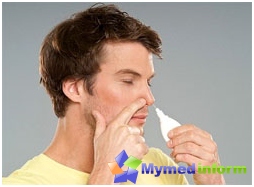
Local vesseloring agents help to cope with the nasal mortgage and abundant watery discharge.
Just remember that long-term (more than 4-5 days) The use of droplets may cause drug addiction!
Of course, no one offers to apply all 5 groups of medicines at the same time. There are approximate schemes for the treatment of allergic runny nose depending on its degree of severity:
- Easy degree of illness of the disease: hystamplockers are prescribed inside, local - vesseloring drops and cromons. With the ineffectiveness of therapy, therone is replaced with local glucocorticosteroids;
- Average severity of allergic runny nose. Therapy is beginning with steroid sprays in parallel with the use of thoroughbuilding means and histamine blockers, if necessary;
- And finally, systemic corticosteroid drugs can be added to the difficult course of the disease in the treatment scheme in the minimum dosage and short courses.
Surgery.
If the patient has irreversible changes in the nasal mucosa, hypertrophy of nasal shells, cysts, polyps and other anomalies, surgical treatment methods are applied.







